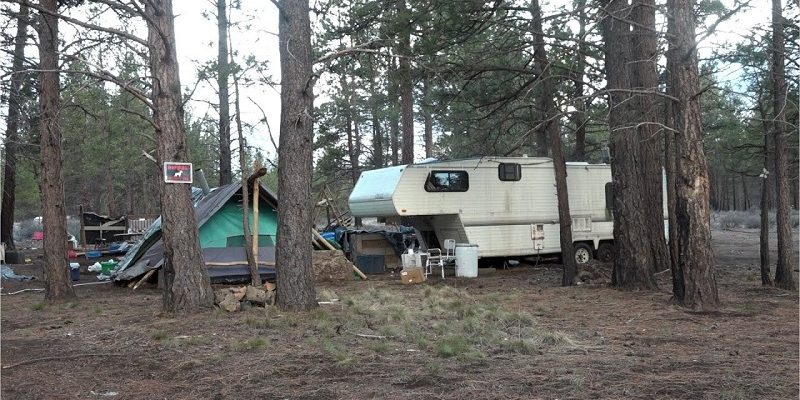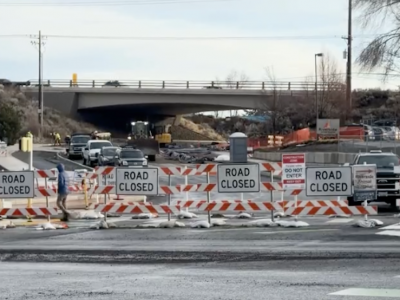
BEND, Ore. — A group of homeless individuals and their advocates have filed a request for a temporary restraining order (TRO) in federal court to stop a major forest restoration project south of Bend that would close off 40 square miles of public land and displace dozens of unhoused residents beginning May 1.
The Cabin Butte Fuel Reduction Project, spearheaded by the U.S. Forest Service, is aimed at reducing wildfire risk through mechanical thinning and prescribed burns in the China Hat area. Officials say the project is necessary to protect the growing city of Bend from future catastrophic fires. The closure is expected to last at least one year, and authorities have warned that enforcement will be strict, with violators facing potential fines of up to $5,000, imprisonment for up to one year, or both.
Filed in U.S. District Court in Eugene, the TRO request comes from four individuals currently living in the closure area, along with two homeless service providers—Eric Garrity and Charles Hemingway—on behalf of at least 76 others who have submitted disability complaints to the U.S. Department of Agriculture (USDA), which oversees the Forest Service. The complaint also seeks relief for an additional 40 homeless individuals who have not filed such complaints.
Plaintiffs argue that the Forest Service failed to consider the project’s impact on the “human environment,” particularly the unhoused community that has long used the China Hat area for shelter. The complaint states that the Forest Service provided insufficient public notice about the project, dating back to its origins in 2019, and did not adequately engage with or offer alternatives to those who will be displaced.
One of the plaintiffs, Penny Gartner, told Central Oregon Daily News earlier this month that many residents still do not have a place to relocate, with less than two weeks remaining before the enforcement deadline.
The Forest Service has maintained that it has provided several months of notice and has worked with local advocacy groups to inform those living in the area. Officials say the project is critical for the safety of nearby communities and is aligned with long-term fire mitigation strategies in Central Oregon.
The legal complaint seeks not only an immediate halt to the May 1 closure but also a hearing to consider a permanent injunction. It calls for additional relief measures to address the housing and disability needs of those affected.
As the deadline approaches, the case underscores a growing tension between environmental policy and the humanitarian crisis of homelessness—especially in regions like Central Oregon, where public land often becomes a last refuge for those with nowhere else to go.
A hearing date for the TRO has not yet been scheduled.












